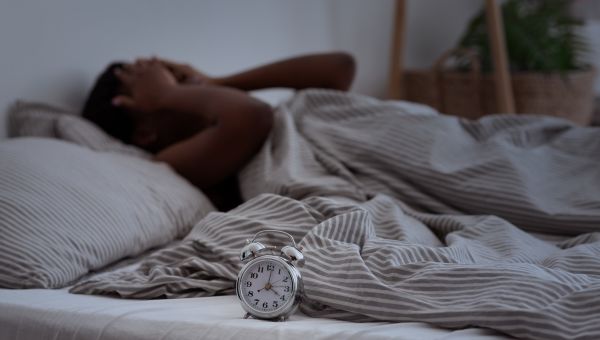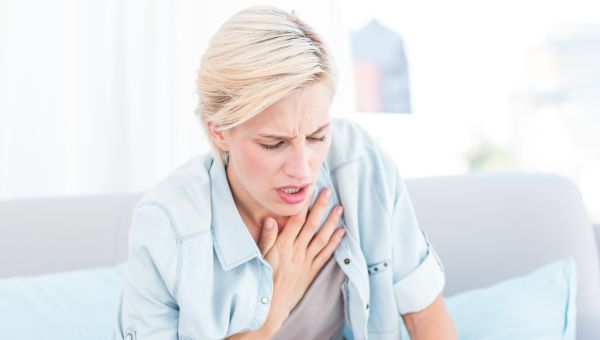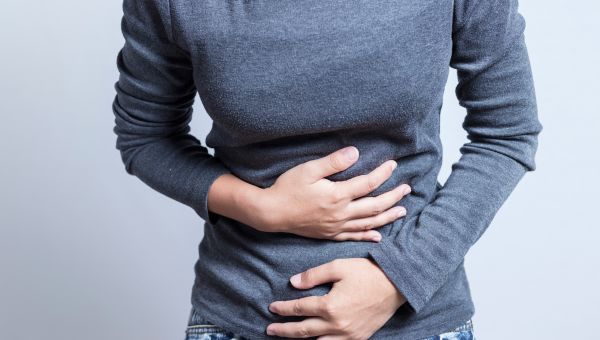7 ways stress can harm your body
Stress can harm your mental well-being and physical health. But these simple tips can help settle your nerves.
Updated on March 1, 2024

Feeling frazzled? You’re not alone. Between worrisome current events and concerns at home, work, and school, Americans constantly manage a host of stressors. These effects are compounded by a mental health system that often fails to keep up with need.
It’s well-known that stress can cause physical issues like chest pain, teeth grinding, and sweaty palms. But it can affect the body in more surprising ways, too. Here are some of the many forms stress can take, plus smart strategies to help you take control.

Insomnia
Sure, a long night at the office or a spat with your spouse can interfere with your sleep and leave you feeling sluggish the next day. But chronic insomnia can affect your body much more than that. Sleep deprivation increases your risk for obesity, dementia, heart disease, and high blood pressure. It can also increase your chances of catching a cold and having accidents, including being in a fatal car accident.
Solution: A few small lifestyle changes can help you get more ZZZs. Try adopting good sleep practices, such as:
- Keeping a regular sleep/wake schedule
- Avoiding caffeine and alcohol in the hours leading up to bedtime
- Getting regular exercise
- Keeping your bedroom quiet, cool, and dark
- Shutting off electronics at least 30 minutes before bed

Fatigue
After a busy, hectic day, anyone can feel run down. But if you are frequently fatigued, stress may be the cause. In fact, stress can lead to a number of sluggish symptoms, including lack of motivation, difficulty concentrating, apathy, and depression.
The opposite is true, as well. Just as stress may contribute to fatigue, feeling constantly tired can stress you out, creating a vicious cycle.
Solution: Experts recommend you make it a top priority to take on only what you can handle. Try to build a little extra time in your schedule to take care of yourself, too. Finally, find relaxtion techniques that work for you.

Headaches
Stress is a major cause of headaches, especially tension headaches, which feel as if you have a tight band around your head. When you’re stressed, your scalp and neck muscles tighten, potentially triggering tension. Other research also suggests that people who get tension headaches may have a heightened sensitivity to stress and pain.
Solution: Over-the-counter medications may be adequate for people whose stress headaches are infrequent. But they're only a temporary solution for people who deal with chronic stress or tension headaches. If your stress headaches are chronic, try cognitive behavioral therapy (CBT), a type of talk therapy that can help you identify headache triggers treat issues causing the pain. One 2019 study in the journal Headache found that using CBT reduced the disability levels of people with chronic migraines by more than 20 percent.

Neck and Back Pain
If you’re majorly stressed out, that stiffness in your neck or back could be related. When you’re stressed, the muscles in your neck or back may tense up because you’re on guard. Stress can also worsen existing pain. Studies have shown that very stressful life experiences can be closely associated with neck pain.
Solution: Gentle exercise may seem like the last thing you have time for, but especially for back pain, research shows it really helps. Just 20 minutes a day of walking or yoga can help reduce stress and loosen weary back muscles.

Shortness of Breath
When you’re surprised, you may feel for a moment that your breath was literally taken away. That’s normal. But if you experience shortness of breath because of stress, that may be a sign you’re hyperventilating, which can lead to a panic attack.
Solution: Get to a healthcare provider (HCP), stat. The first thing you need to do is rule out physical causes of shortness of breath (dyspnea), such as a heart problem. If the cause is psychological, your HCP can refer you to a mental health professional who may recommend CBT, anti-anxiety medications, or both.

Gastrointestinal Symptoms
The gut is extremely sensitive to stress. (You have more nerve endings in your gut than in your brain and spinal cord.) When your brain gets stressed out, it releases a bunch of hormones that can knock your gastrointestinal (GI) system out of whack and cause a range of problems—from no appetite to massive appetite, nausea to diarrhea.
Solution: The same stress management techniques you use to tackle other symptoms of stress should help soothe your GI system. Meditation, focused breathing, exercise, and using a gratitude journal can all be helpful. Other tips to help keep your belly balanced: Eat a diet high in fiber and get regular physical activity.

Loss of Libido
Some nights, you’re just not in the mood for love. But a lasting loss of libido is something different, and has many possible explanations, including hormonal changes, relationship problems, and medications that can dampen sex drive, such as those used to treat depression and hypertension. Stress, however, is a major factor for many people.
Solution: Talk to your HCP and be completely honest about what’s going on (or not going on) in the bedroom. There are many ways to overcome this hurdle, including medications, counseling, lifestyle changes, or a combination of these.

National Institute of Mental Health. I’m So Stressed Out! Fact Sheet. Accessed July 15, 2022.
Mayo Clinic. Emotional Exhaustion during times of unrest. Page last reviewed July 30, 2020. Accessed July 15, 2022.
Cleveland Clinic. Insomnia. Page last reviewed October 15, 2020. Accessed July 15, 2022.
Johns Hopkins Medicine. The Effects of Sleep Deprivation. 2022. Accessed July 15, 2022.
American Academy of Sleep Medicine. Healthy Sleep Habits. August 2020. Accessed July 15, 2022.
MedlinePlus. Hyperventilation. August 13, 2020. Accessed July 15, 2022.
MedlinePlus. Panic disorder. May 10, 2020. Accessed July 15, 2022.
National Institute of Mental Health. Panic Disorder: When Fear Overwhelms. 2022. Accessed July 15, 2022.
National Health Service. Low sex drive (loss of libido). June 8, 2022. Accessed July 15, 2022.
MedlinePlus. Tension headache. November 9, 2021. Accessed July 21, 2022.
Cleveland Clinic. Tension-Type Headaches. February 4, 2021. Accessed July 21, 2022.
Bezov D, Ashina S, et al. Pain perception studies in tension-type headache. Headache. 2011 Feb;51(2):262-71.
Hartford Healthcare. Cognitive Behavioral Therapy (CBT) for Headache. 2022. Accessed July 21, 2022.
Seng EK, Singer AB, et al. Does Mindfulness-Based Cognitive Therapy for Migraine Reduce
Migraine-Related Disability in People with Episodic and Chronic Migraine? A Phase 2b Pilot Randomized Clinical Trial. Headache. September 26, 2019.
Centers for Disease Control and Prevention. Coping with stress. March 25, 2022. Accessed July 21, 2022.
NIH: National Institute on Aging. Sexuality and Intimacy in Older Adults. April 18, 2022. Accessed July 21, 2022.
Graziottin A. Libido: the biologic scenario. Maturitas. 2000 Jan;34 Suppl 1:S9-16.
Office on Women’s Health. Menopause and sexuality. February 22, 2021. Accessed July 21, 2022.
American Psychological Association. Stress effects on the body. November 1, 2018. Accessed July 21, 2022.
Harvard Health Publishing. The gut-brain connection. April 19, 2021. Accessed July 21, 2022.
More On


video

article

slideshow


video


video
